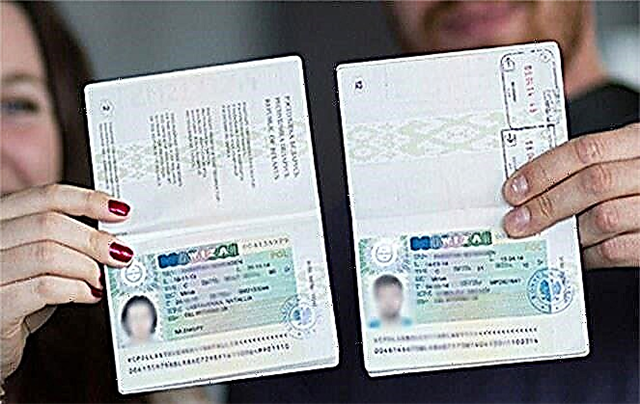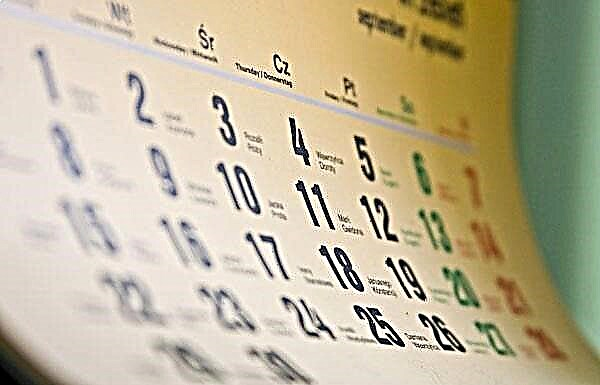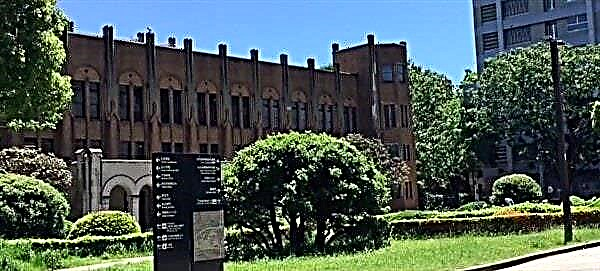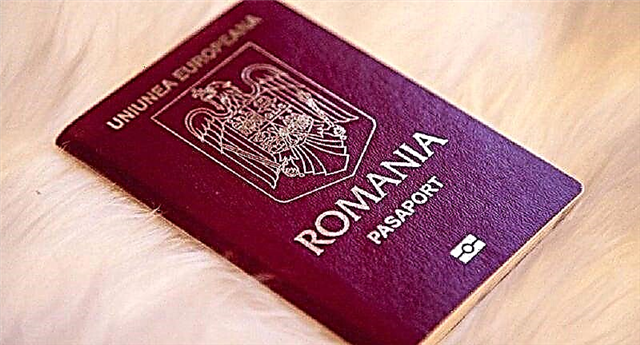The education system in the Land of the Rising Sun is one of the best in the world. Japanese universities are at the top of the ranking of the most educated countries. The structure of the educational process is close to the Western European system, but with the obligatory preservation of Japanese traditions.
Higher education
Japanese universities have a number of advantages:
- Even a short internship can contribute to further development in the chosen profession;
- The ability to master the Japanese language;
- Obtaining an international diploma;
- The experience of living in a different cultural environment.
Studying at a Japanese university lasts four years. The first semester starts in April and ends in September. The second semester runs from October to March.

The volume of the course passed is estimated in credit units. They are credited for listening to lectures, passing seminars and passing exams. The passing score for bachelors is 125-150 units.
Students will need four years to obtain a bachelor's degree, a higher master's degree - two more. Postgraduate studies will take three to four years. There are accelerated learning programs.
They are available for the future:
- Philologists;
- Teachers;
- Sociologists.
The admission age for foreign students for undergraduate studies is from 17 to 35 years old. The maximum age for graduate and postgraduate studies is 35 years.
Education programs
General education in Japan consists of preschool institutions, primary schools, and secondary schools (first and second stages). A special place is occupied by inclusive education, that is, teaching children with disabilities.

You May Also Like
For further education, there are the following options:
- College. Training lasts 4 semesters, mostly girls. The main direction is the humanities;
- Schools for special vocational training. Very often, such schools are attended by university students to acquire in-depth knowledge;
- State and national universities. Upon admission, they pass two exams - one in a higher educational institution and a school "Test of the first stage achievements";
- Private universities. The cost of training is higher than in a government institution, but applicants only take a general exam.
The structure of the system in universities is very similar to that in Western Europe and has different levels.
- Bachelor's degree. In the first two years of the basic course, students are engaged in the study of general scientific subjects, and in the next two - highly specialized ones. Upon graduation, the student receives a bachelor's degree;
- Master's degree. Allows you to get one more specialization and a master's position;
- Postgraduate studies. Essential for pursuing a scientific career. Graduates who successfully defended their dissertations are awarded the degree of Doctor of Science.
Conditions for admission
Foreigners are admitted on a competitive basis, after the age of 18. The selection takes place with the assistance of the Japanese Embassy in the applicant's country. The applicant must provide a package of documents, pass an interview exam and pass an entrance test.

Before entering a Japanese university or institute, you must study at home for at least 12 years (11 classes + a language school or one university course). For master's degree - 16 years.
An indispensable condition for admission is knowledge of the Japanese language at a high level. An applicant must score at least 200 points in the Nihon Ryugaku Shiken exam or have a Nihongo Noryoku Shiken certificate (90–100 points out of 180). Entry tests are held in November and June.
Here are some options for how to take the exam:
- Study in your home country, and enroll in a host country (a short-term visa is issued for the trip);
- Study Japanese and take the test at home (the main advantage is that you don't have to go abroad);
- Move to Japan and improve your knowledge there.
List of required documents
Foreign citizens, including those from the CIS countries (Russians, Kazakhstanis, Armenians, Belarusians, etc.) will need the following documents for admission:
- Japanese language proficiency test results (if they are not available, you will need to take an exam;
- Application for training;
- High school graduation certificate;
- International passport;
- Medical certificate;
- Photos 3 × 4 8 pcs .;
- A letter of recommendation from a Japanese teacher;
- A package of financial and legal documents that guarantee the availability of funds for the period of study.
You May Also Like
To obtain higher education, a student visa is issued. The easiest way to do this is through the embassy or Japanese university.
To issue a document you will need:
- International passport;
- Documents guaranteeing creditworthiness;
- "Certificate of Compliance" (issued by the Japanese Ministry of Justice).
Tuition fees in 2021
Regardless of whether the university is private or public, education in it is paid. The cost of one year of classes is indicated on the official website of the university. On average it is $ 4,000-7,000... in one year.
However, the final amount depends on the institution chosen. For example, at Tokyo and Nagoya University, the cost of one year is the same for all levels - $ 4.822.
The rates for the training program in a commercial organization are higher. At Keio University for Bachelors - $ 7,559., for masters - 8,280 dollars... At Waseda Private University - $ 12,347... for masters.
Is it possible to get education for free
Paid higher education in Japan does not surprise anyone. However, two free programs have been developed specifically for students who have arrived from other countries.
- "Student". The study lasts 8 semesters, plus 2 semesters are devoted to the study of the Japanese language. Upon graduation, a diploma is issued corresponding to the diplomas of the native Japanese. A couple of places are allocated for foreigners a year, so in order to get into the program, you will have to go through a strict selection;
- "Researcher"... Designed for 4 semesters, intended for research students. To receive a grant, you must present your research better than your competitors. After completion, students are given the right to enroll in a magistracy, and later on to a doctorate. On average, 3-4 students receive a grant per year.
What are the scholarships and grants for foreigners
In addition to the existing programs for obtaining free education, a foreign student can receive a grant or scholarship to study.
Most Popular:
- Scholarship from the Ministry of Education, Culture, Sports, Science and Technology of Japan. Granted to citizens of a country that has diplomatic relations with Japan. The amount of the scholarship is 1 thousand dollars;
- Matsumae International Foundation Scholarship. The scholarship applicant must have a proven scientific degree. After completing the internship, the applicant must return to his homeland. Scholarship in the amount of 2 thousand dollars. covers tuition fees, food and travel expenses;
- Honyo International Scholarship Fund. Available to candidates no older than 30 with basic knowledge of the language. For participation in scientific conferences it is financed additionally.
Features for internship and exchange programs.
Most often, the opportunity to travel to Japan on an exchange is offered by universities with in-depth study of the language. The allowed age for participation is from 18 to 30 years old. The programs often provide a dormitory for students to live.

To participate in the research trainee program, you must study at a university that is somehow connected with Japan.
For graduate students, in addition to standard documents, it is required to provide a letter from their supervisor with a request for an internship.
Accommodation and meals for students
Some of the educational institutions in Japan own a living space that can be used by foreigners. This is usually a place in a dorm, a rented apartment or room. The cost is 200-450 dollars / month. Students not living in the capital save about 30% from the sum.
Students can also rent an apartment or room on their own. The cost of this type of housing is about 600-800 dollars / month... A grant or scholarship often covers living expenses.
Monthly expenses include:
- Nutrition - up to 400 dollars;
- Transport - 100 dollars;
- Communal payments - $ 150
Top universities in the country
Most of the 700 universities in Japan are private, i.e. commercial. A strict hierarchy is the hallmark of all educational institutions.
The most prestigious universities in Japan are known all over the world:
- University of Tokyo (Japanese 東京 大学). The most famous state university. The faculties of jurisprudence and personnel management, chemistry, and foreign languages are popular among students. According to statistics, 90% of graduates find work in their specialty. Link to official site - www.u-tokyo.ac.jp;
- Tokyo Institute of Technology (Japanese 東京 工業 大学). The educational institution is highly respected by employers around the world. It consists of six different schools and several research centers. Education includes the study of natural sciences, management, medical specialty, engineering, mathematics, social sciences. Link to official site - www.titech.ac.jp;
- Kyoto University (Japanese 京都 大学). The second most prestigious public institution after the University of Tokyo. Located in Kyoto. The strongest areas of study are considered art, medicine, technical sciences. Link to official website - http://www.kyoto-u.ac.jp;
- Osaka University (Japanese 大阪 大学). One of the largest universities in Japan. The main specializations are engineering, natural sciences, art. The official website is www.osaka-cu.ac.jp.
- Soka University (Japanese 創 価 大学). Private institution for higher education. On average, 2-3 applicants apply for one place. The selection committee accepts applications from foreign citizens. Official site - www.soka.ac.jp;
- Nagoya University (Japanese 名古屋 大学). Ranked fifth in the ranking of the best universities in Japan. Popular areas are physics, chemistry, art, engineering. The link to the official website is www.nagoya-u.ac.jp.

Diverse reviews of studies
Anastasia:The main thing is the desire to study. There are many courses for foreign students to study the language. It is difficult to pass the language proficiency test. And how many hieroglyphs from the Japanese alphabet are required to know! Two thousand. From my own experience, I advise you not to use cheat sheets, the punishment will be very harsh.
Elena:She lived in Asia for several years. I want to say that it is easier to get an education in Japan if you graduate from a university in your home country. You should also calculate your financial capabilities. In commercial universities, salaries are usually higher than in state ones, but enrollment there is a little easier. Plus there is an opportunity to get a loan for education.
Andrey:I have been living in Tokyo for almost two years. Newbie tip - improve your spoken language. Students here can take part-time jobs as a part-time job. But you need to be able to communicate.
Asian countries have never been able to boast of a large flow of foreign students. However, the percentage of applicants from other countries is growing every year. To attract foreigners, Japanese universities are improving the curriculum and adding new subjects. In addition, if earlier teachers taught classes exclusively in Japanese, now many disciplines are taught in English.











